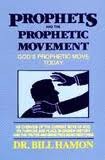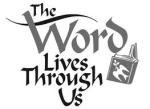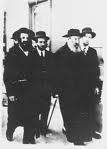 There Ain’t No Pharisees In My Church, Right?
There Ain’t No Pharisees In My Church, Right?
“’Be on guard against the yeast of the Pharisees and Sadducees.’ Then they understood that he was not telling them to guard against the yeast used in bread, but against the teaching of the Pharisees and Sadducees.” Matthew 16:11-12
 There were two predominate sects in the Jewish faith at the time of Christ, the Pharisees and the Sadducees. The Pharisees would be described today and right wing evangelical fundamentalist in the Church today while the Sadducees would be “the others”, or as in the eyes of the Pharisees, anyone who isn’t like “us”. That pharisaical attitude is alive and well, in fact, alive and strong in the Church today, going far beyond the sects of Christianity that I have pictured. Every Christian sect thinks they have the inside tract on “true” theology. That is what makes them different from the rest. The “proper” discernment of “truth” is what sets them apart from the rest of the body of Christ, as if the rest of the body of Christ is in error. Hmmmm, 99.99% of the body of Christ is in error, but we are not! Does that make sense when looking at the body of Christ as a whole?
There were two predominate sects in the Jewish faith at the time of Christ, the Pharisees and the Sadducees. The Pharisees would be described today and right wing evangelical fundamentalist in the Church today while the Sadducees would be “the others”, or as in the eyes of the Pharisees, anyone who isn’t like “us”. That pharisaical attitude is alive and well, in fact, alive and strong in the Church today, going far beyond the sects of Christianity that I have pictured. Every Christian sect thinks they have the inside tract on “true” theology. That is what makes them different from the rest. The “proper” discernment of “truth” is what sets them apart from the rest of the body of Christ, as if the rest of the body of Christ is in error. Hmmmm, 99.99% of the body of Christ is in error, but we are not! Does that make sense when looking at the body of Christ as a whole?
Jesus warned about the “teaching” of the present day institutionalized religious leaders. In the Jewish tradition, the Talmud, which is an accumulation of “interpretations” of what the Torah was said was larger than the Torah itself. Take a high level graduate course on “Theology” at a seminary, and you will see what I mean. The simplicity of the gospel is expounded in complexity as theologian upon theologian proposes their interpretation upon scripture, dissecting it historically, grammatically in Greek, Hebrew, Arabic, or whatever, and against other philosophies and interpretations. The “yeast” is rising.
 When the children of Israel were freed from centuries of slavery, they did not have time to use “yeast” in their bread, because yeast takes time to rise before it is baked. They didn’t have “time,” for God was on the move. Once freed, they didn’t bake bread like they did in Egypt because God supplied “manna,” a godly bread substitute, daily. They still did not have time to bake bread with yeast, for God was still on the move led by a pillar of fire by night and a cloud by day. He was on the move 24/7.
When the children of Israel were freed from centuries of slavery, they did not have time to use “yeast” in their bread, because yeast takes time to rise before it is baked. They didn’t have “time,” for God was on the move. Once freed, they didn’t bake bread like they did in Egypt because God supplied “manna,” a godly bread substitute, daily. They still did not have time to bake bread with yeast, for God was still on the move led by a pillar of fire by night and a cloud by day. He was on the move 24/7.
 “Revival” is when “God is on the move”! When revival hits, the Church doesn’t have time for committee meetings, counsels, position papers, defining dogma and doctrine, and months and years for seminary training. God is on the move. There is no time for the “yeast” to rise! During revival, the Holy Spirit supplies fresh “manna” daily to his people. There is no need, nor time, for yeast.
“Revival” is when “God is on the move”! When revival hits, the Church doesn’t have time for committee meetings, counsels, position papers, defining dogma and doctrine, and months and years for seminary training. God is on the move. There is no time for the “yeast” to rise! During revival, the Holy Spirit supplies fresh “manna” daily to his people. There is no need, nor time, for yeast.
So what is the “yeast”? According to Matthew 16:12: “the teaching of the Pharisees and Sadducees.” During revival the Holy Spirit becomes the teacher, not the doctrinal church hierarchy of its time. The Holy Spirit teaches simple truths clearly, powerfully, and quickly to the masses in unity. These simple truths are what I call the “apostolic” teaching that needs to be reinstated into the Church, the truths that transcends the Pharisees’ and Sadducees’ teachings in today’s Church structures. They are the “same” truths for every “sect” or part of the body of Christ, the Church, that do not differ because of the “yeast” of teaching that always brings division and sectarianism in the Church. They are truths, powerful truths, freeing truths, truths of grace, mercy, and forgiveness, simple truths, easy to understand, easy to apply in one’s everyday life, truths that apply to every believer in Jesus Christ anywhere. They are truths that unify the body of Christ, not divide, and no one sect or group has the inside scoop on what they are.
As we move toward revival in the Church, these truths will be opposed by the pharisaical “yeast” of our day, the entrenched theology of distinct sects within Christianity. As we have seen in previous blogs, revival features a “flat world” approach of equality of peers, the priesthood of believers, not a pyramid type clergy/laity structure. Pyramidal clergy/laity structure produces “yeast” because naturally it has time to “rise”, usually in the form of “traditions”. Jesus warned of these “traditions of men.” With time, in a pyramid form of structure, “yeast” will naturally rise. During revival, there is no time for “yeast”. The Holy Spirit teaches for that moment in time to his people in that moment of time, the simplicity of the gospel, the good news, to bring freedom from bondage no matter if it is secular or religious. Religion is leery of revival; the secular unsure of it, but both end up opposing it. Revival is always on the move! But once the season of revival is over, with time, the “yeast” sets in to digest, interpret, and theorize the revival, rejecting most of the revival’s universal truths, and implementing some of the truths over the period of several decades when it makes it their norms, although watered down in form and truth.
 Want revival? Beware of the “yeast”! Prepare to be on the “move” when there is no time for “yeast” for rise. When in the dessert of daily living, “yeast” bread will bake when heated forming a protective crust, but “manna” bread will bring life, freedom, and must be picked daily. Old manna rotted. “Yeast” laden bread is “kneaded”, but God’s living bread, daily manna, is really what is “needed” each day because God’s people were on the move. Jesus said, “I am the bread of life.” Let me tell you, Jesus’ bread is “yeast”-free, pure manna, Godly nutrient!
Want revival? Beware of the “yeast”! Prepare to be on the “move” when there is no time for “yeast” for rise. When in the dessert of daily living, “yeast” bread will bake when heated forming a protective crust, but “manna” bread will bring life, freedom, and must be picked daily. Old manna rotted. “Yeast” laden bread is “kneaded”, but God’s living bread, daily manna, is really what is “needed” each day because God’s people were on the move. Jesus said, “I am the bread of life.” Let me tell you, Jesus’ bread is “yeast”-free, pure manna, Godly nutrient!




















































